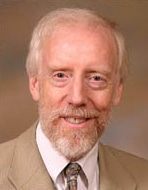“If Canada delayed CO2 reduction decisions by, say, a year, while the science was more closely examined, what would be the impact on global climate?
“Essentially none.”
Tom Harris, the Natural Resources Stewardship Project
The piece from which the above quote is taken, published on the ever accommodating “Canada Free Press” site, is typical of the material produced by Tom Harris, PR guy extraordinaire, whose former boss, Timothy Egan at the Toronto-based lobby firm, the High Park Group, urged Tom to start the Natural Resources Stewardship Project to lobby Canadian government and the Canadian public on climate change.
The NRSP ‘s stated purpose is to block the passage of any climate change regulation. And the High Park Group is an energy industry specialist that would have to declare the source of the funding for this lobby effort if Tom Harris was still operating in-house.
Now, surprise, Tom can solicit “scientific” assistance and work full-time trying to colour Canadians’ understanding of this issue, while refusing to say who’s paying his bills.
We can only guess.
Subscribe to our newsletter
Stay up to date with DeSmog news and alerts







